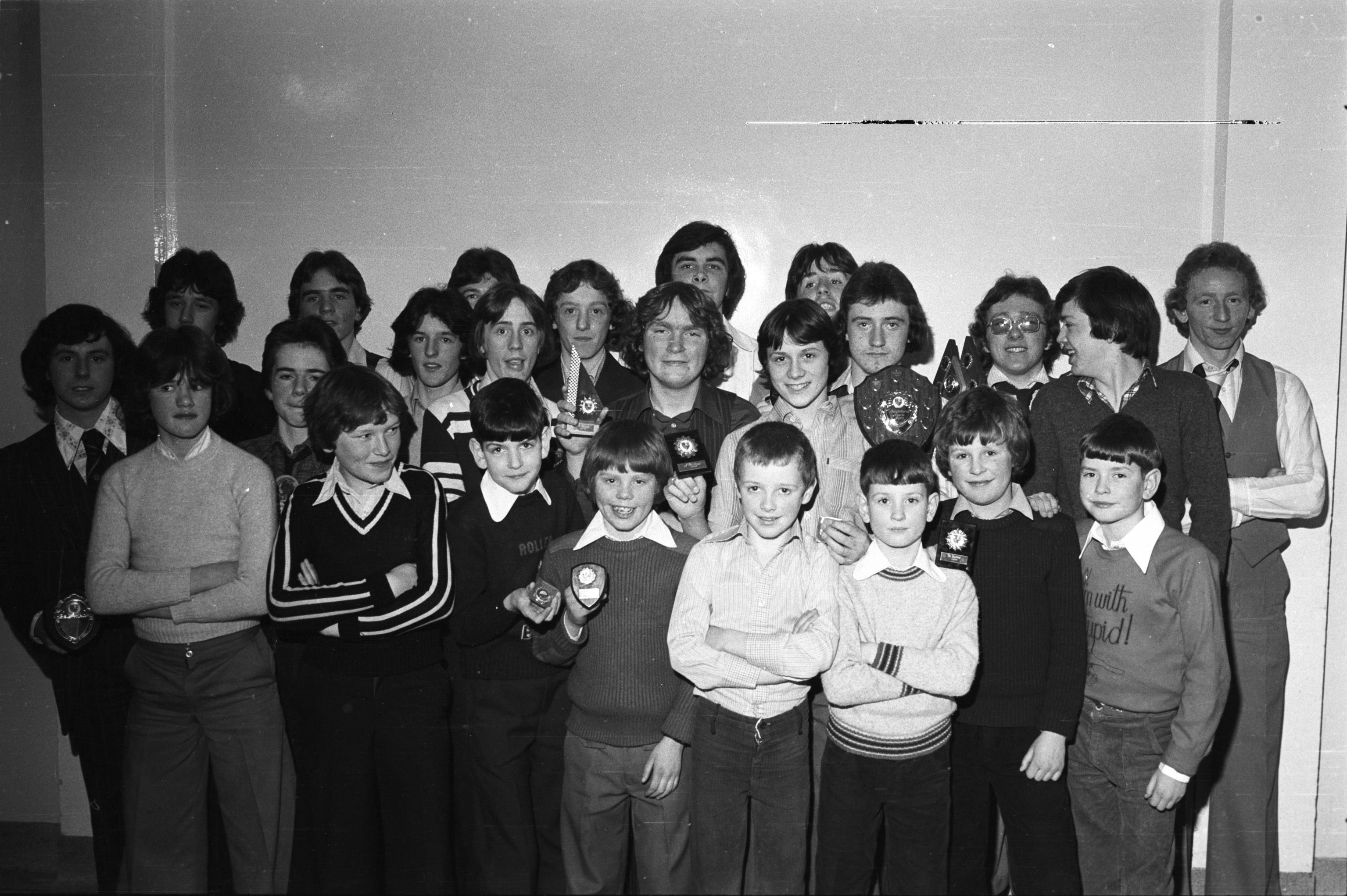We look back at the stories that were making the headlines in the Andersonstown News this week in 1979
A’town News Award for prisoners' families
The Andersonstown News Award was presented last Friday night at a ceilí in the Kerri Inn to Mary and Michael Nugent on behalf of the Blanket Men and their families. This is the second year the award has been offered.
Last year’s recipients were the Association for Legal Justice. The Award, in the form of an Antrim Crystal vase with the legend ‘Leas an phobail, síocháin le ceart’ (for the good of the people, peace and justice), was presented by Seán Mac Aindreasa, Andersonstown News Editor, who said that the Award was intended originally as a gesture of appreciation and gratitude to a group or individual who, in the opinion of the paper’s Editorial Board, had made a stand for something worthwhile in Ireland.
The H-Block Blanket Men, he said, had made that stand. It wasn’t an easy stand to make, it demanded the greatest physical and mental stamina, and it wasn’t taken for any personal gain or glory, but because as prisoners of conscience, they couldn’t abide by the British Government’s attempts to brand them criminals.
The Award was offered, he said, in particular to the prisoners’ families who had also suffered, and whose stance was heroic as was their son’s. Mr Michael Nugent, whose son Ciarán has been over two years ‘on the blanket’ and is due to be released shortly, received the award, and said that his son and his comrades were simply fighting the tail-end of a war that had been going on for 700 years. He said that the men ‘on the blanket’ were fully determined to carry on their fight for peace and justice. “All I want to say,” said Mr Nugent, “is that no other worthier cause was ever served so worthily.”
Fr Denis Faul, who as a close associate of the Association for Legal Justice, was a recipient of the Award last year, also addressed the crowd of several hundred at the ceilí. He referred to his regular visits to the H-Blocks where he says Mass every week, and to the high spirits of the prisoners despite impossible conditions. “What’s the scéal? That’s the first question I’m asked when I visit them,” he said. “They’ll be glad to hear about this presentation tonight.”
Fr Faul referred also to the proposed Washington conference which hopes to bring together all parties in the Irish-British conflict, including all paramilitaries and the Dublin and London governments. He appealed to Provisionals, Officials and SDLP to take part.
Ardoyne Óg winners of South Antrim Minor Camogie League and Antrim Minor seven-a-side, show off their trophies at the Ardoyne (Ard Eoin) Óg Ceilí in St Gabriel's School
Editorial
THE Panorama programme on Monday evening about the H-Block protest was of some value in that it gave free publicity to a subject largely ignored (quite deliberately) by the media. It showed Roy Mason again as the shifty individual he is, as dishonest as any of his British Government colleagues.
The programme seemed to be for the British home consumption, and was a poor, half-hearted attempt to probe the question in depth. This was disappointing from Keith Kyle who did such a good job on the RUC over the torture of Bernard O’Connor.
Our Amercian friends did us little service, especially Dr Fred Burns O’Brien, who allowed himself to be tied up by Kyle, and appeared almost as shifty as Mason himself. Of course, Mason was abler to handle Kyle on the odd occasion that pressure was applied.
The frustrating part of this programme, and of all such programmes, is knowing the questions that should be asked, and knowing that they won’t be asked. For example: why do prisoners demand political status in the first place? Why should March 1976 change the position of prisoners convicted of the same type of ‘crime’? Why are they in prison at all? Why is there a war in Ireland? Why do so many of our best young people feel compelled to take part in the fight? What’s wrong with this sorry country?
You can’t talk about the H-Block protest without asking those questions; and of course, Mason wasn’t asked them. He wouldn’t allow such questions because he couldn’t answer them truthfully without admitting the justice of the nationalist position.
Liam Millen, Elizabeth Trainor, Denise McMullan, Elaine Trainor (Senior player of the Year), Brian Shannon, Joe Lavery (who won the Ciarán Murphy Award), Fr Albie, Una Maguire, Mary Grogan and Clubman of the Year Tony Breen at the Ardoyne (Ard Eoin) Óg Ceilí in St Gabriel's School
Kathleen Thompson
ON Monday afternoon after Requiem Mass in St Teresa’s Church, many thousands of mourners followed the coffin of Kathleen Thompson down the Glen Road and into Milltown Cemetery.
The church was packed to capacity and many women wept openly as her flag-draped coffin was placed in the hearse and two pipers preceded the funeral cortege along the Glen Road playing slow airs.
At the graveside the mourners braved a bitterly cold wind to listen to a moving tribute delivered by the vice-president of Sinn Féin, Gerry Adams. After extending his sympathy to her family and friends, he spoke of Kathleen’s patriotism, her great generosity when lending her remarkable singing talents to many a good cause.
Kathleen, he said, regarded herself as a republican first of all, and only secondary to that as a singer. When recalling the lines of the ballad most closely associated with her name – The Four Green Fields – he said he hoped that the words expressed in the song “that the four green fields would bloom once again some day” would be her fitting epitaph.
Kathleen, who was in her mid-thirties, leaves behind a husband and two young children.
Mickey Gallagher, Andy McCallin, Fr Murphy, Brendan Grieve, Roy McIlroy, Jim Donnelly, Seamus O'Hare and Antrim Chairman Jack Rooney at St John's GAC football awards celebration





